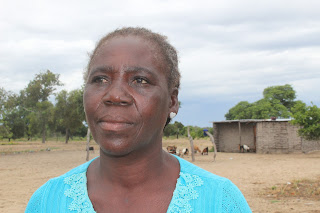 |
| Participants from various institutions gathered for a CTA-sponsored workshop in Chisamba to share ideas on climate change finance |
Nationally Determined Contributions (NDCs) are the core of the
Paris Agreement at the 21st Conference of Parties (COP21) to the
United Nations Framework Convention on Climate Change (UNFCCC). They include
country-specific strategies and targets for reducing global Green House Gas
(GHG) emissions in a bid to address climate change. Zambia’s Intended Nationally
Determined Contributions (INDCs) were submitted in 2015, and when Zambia
ratified her INDCs in December 2016,
they became her NDCs. Zambia’s NDCs comprise both mitigation and adaptation measures.
Here adaptation measures have strong mitigation components.
As a mitigation measure, Zambia committed herself to reduce her
GHG emissions by about 47% from the 2010 baseline.









